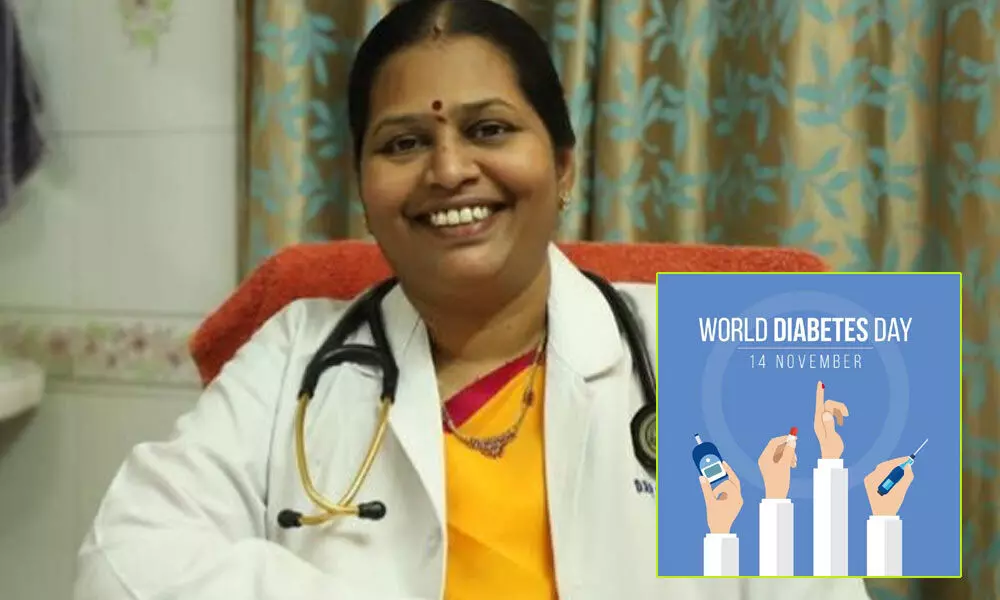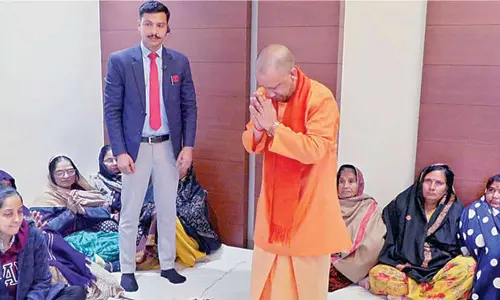Tirupati: 'Access to Diabetes Care' highlights holistic screening

Dr Krishna Prasanthi
- Still, more than 57 per cent of people do not know that they are diabetic and not aware of preventive screening measures
- One in every 18 Indians are diabetic and about 3,000 diabetic patients are dying daily
- Cost-effective preventive strategy targeting schools, colleges and universities is required for the betterment
Tirupati: Despite so many national programmes on non-communicable diseases, diabetes etc., still more than 57 per cent of people don't know that they are diabetic. Also, 50 per cent of people, who know that they are diabetic, are not well controlled and not aware of preventive screening measures like eye, heart and kidney examinations. There is a need to educate everyone that diabetes is not only a blood sugar examination but to get screened for target organ damage.
To focus more on this aspect, the theme for this year's World Diabetes Day to be observed on November 14 every year was chosen as 'Access to Diabetes Care'. India stands second next only to China in terms of diabetic population and the estimations suggest that it may further go up in the country by 2030. The country is having around 7.7 crore diabetic population now which means that one in every 18 is diabetic and about 3,000 diabetic patients are dying daily.
This underlines the need for educating people on diabetes and its repercussions. Explaining the importance of giving 'Access to diabetes care,' noted physician and AP State Treasurer for Research Society for the Study of Diabetes in India Dr P Krishna Prasanthi told The Hans India about the need for holistic screening and treatment of diabetic patients.
"In adequate production of insulin and condition of more insulin resistance are causing early diabetes in more people in the country. Early diagnosis, lifestyle interventions, treatment and early recognition of complications gives good quality of life in all patients with diabetes," she opined.
The aim of treatment should be giving quality life to years but not adding years to life. Apart from diabetic treatment, every patient should have a periodical screening of heart, eyes and kidneys. For instance, a basic ECG can save the life and simple eye examination can prevent diabetic retinopathy. Similarly, urine albumin test can indicate any kidney problem that may occur in the next 10 years. Such cost-effective care can save patients from life threatening problems, she averred.
Young girls having obesity, PCOD or thyroid will have the risk of getting diabetes in pregnancy. Such girls should be advised lifestyle modifications even before marriage itself to ensure that they should be away from diabetes or have good control of it during pregnancy and have a good foetus.
"A targeted approach focussing schools, colleges and universities to take health education programmes intensively and make it a part of the curriculum is required which can be a most cost-effective preventive strategy. Any awareness programme should reach the youth more than others to get better results," maintained Dr Prasanthi.















